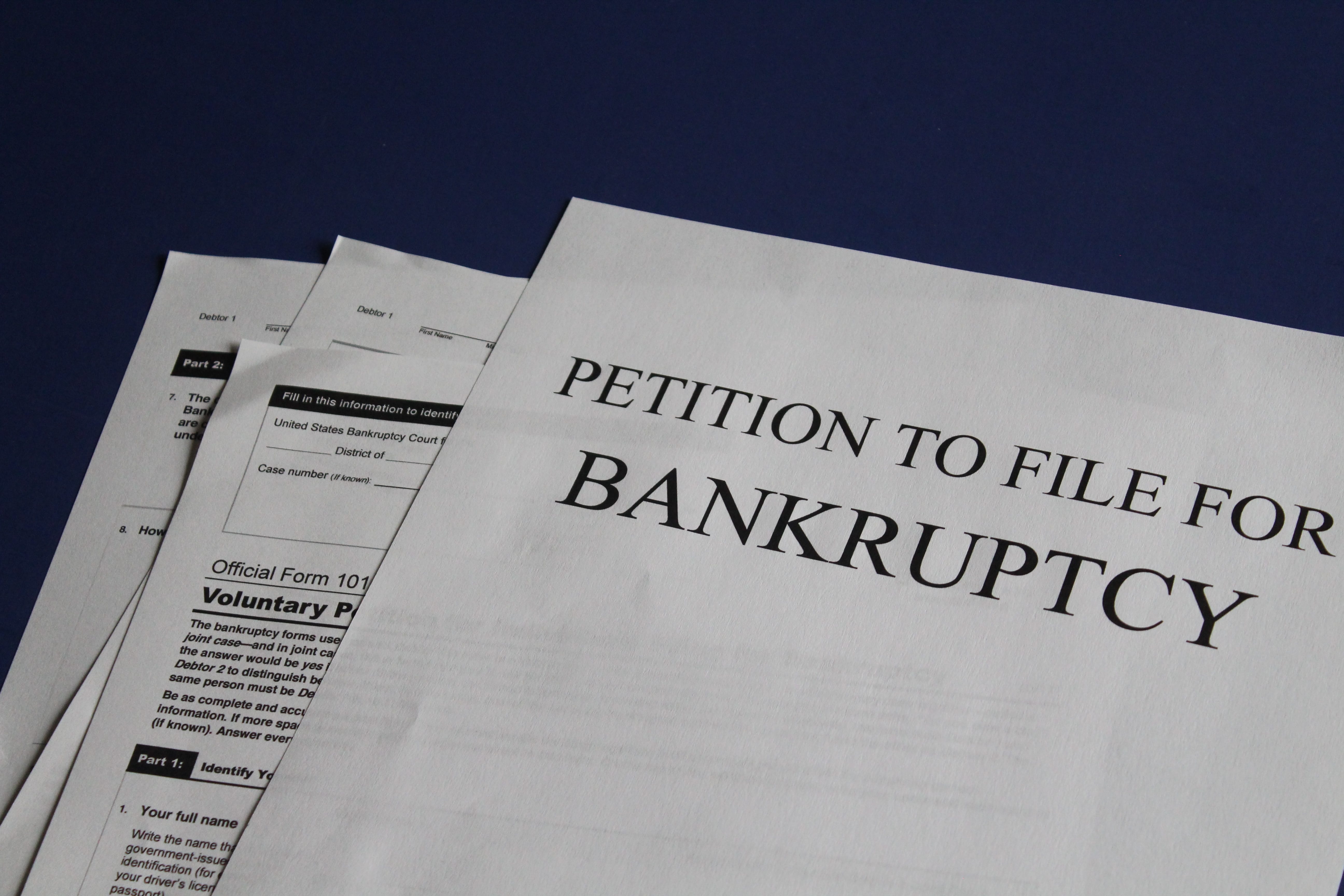If you are filing Chapter 13 without an attorney, you should be aware that the Kansas Bankruptcy Court has local rules, procedures, and forms that you are required to use.
You are considering filing for bankruptcy in Kansas due to financial hardship, but want to learn more about a Chapter 13 bankruptcy. A common question is, “Should I file bankruptcy?”
The purpose of this article is to help you understand all that a Chapter 13 Bankruptcy in Kansas entails making the best option.
Filing a Chapter 13 bankruptcy in Kansas may be the best way for you to get rid of debts you cannot pay. However, is Chapter 13 right for you? Do you know enough about Chapter 13 to make a decision? Ascend can help. We have resources and information about Chapter 13 bankruptcy in Kansas and other debt-relief options.
- Chapter 7 vs. Chapter 13 Bankruptcy in Kansas
- Calculating Chapter 13 Plan Payments in Kansas
- Means Testing in Kansas
- Kansas Credit Counseling and Debtor Education Courses
- Kansas Bankruptcy Exemptions
- Bankruptcy Courts and Trustees for Kansas
- Alternatives to Filing Bankruptcy in Kansas
What is the difference between Chapter 7 vs. Chapter 13 Bankruptcy in Kansas?
Most individuals who are seeking bankruptcy relief file under Chapter 7 or Chapter 13 of the Bankruptcy Code. Chapter 7 bankruptcy cases are usually shorter than Chapter 13 cases, and they don’t require you to repay most unsecured debts.
However, some individuals filing under Chapter 7 risk losing property that is not protected by bankruptcy exemptions. Also, you must meet the income limit requirements to receive a bankruptcy discharge (debt forgiveness) under the Chapter 7 process.
On the other hand, the Chapter 13 process allows you to enter a repayment plan to get rid of your debts. Instead of repaying all your unsecured debts, you can pay a portion of the debts through a Chapter 13 plan. When you complete the plan, the remaining portions of those debts are discharged.
Additionally, a Chapter 13 bankruptcy case can help you save your home from foreclosure and stop your vehicle from being repossessed. A Chapter 13 bankruptcy in Kansas can protect your property from being sold and help you recover after a financial crisis.
Calculating Chapter 13 Plan Payments in Kansas
The amount of your Chapter 13 plan payment depends on several factors, such as your income, expenses, debts, property, and financial affairs. When calculating a Chapter 13 bankruptcy plan in Kansas, it is important to consider all types of debt you owe. We built the Kansas Chapter 13 Calculator below to help you estimate your Chapter 13 plan payment and compare it to what you are currently paying on your monthly obligations.
Some debts treat differently in a Chapter 13 case. For example, general unsecured creditors receive a portion of the amount they are owed. General unsecured debts include credit cards, medical bills, personal loans, most judgments, and old utility bills. However, student loans are generally not dischargeable, even though they fall into this category of debt. You will continue to owe your student loans after the Chapter 13 case is complete.
Priority unsecured debts must be paid in full through the Chapter 13 plan. These debts include most tax debts, money owed to government agencies or entities, alimony, child support, and Chapter 13 administrative fees.
Secured creditors have a lien on the property that you own, such as a mortgage or a car title loan. These debts are handled individually. Mortgage payments are typically paid outside of the plan, but you can catch up on mortgage arrearage (past due mortgage payments) through the Chapter 13 plan to avoid foreclosure.
Car loans are usually paid through the Chapter 13 repayment plan. If you meet certain requirements, you might be able to lower your car payments through a Chapter 13 bankruptcy in Kansas. A Chapter 13 calculator can help you estimate your monthly payments using the bankruptcy forms.
Means Testing in Kansas
The Means Test is a bankruptcy form that you complete to calculate your current monthly income, median income, and disposable income. All three calculations impact your Chapter 13 bankruptcy in Kansas.
Calculating Current Monthly Income (CMI)
CMI is the average income receive during the six months before filing a Chapter 13 bankruptcy case. If you file your Chapter 13 case on July 25, CMI includes all income received between January 1 and June 30 of the same year. The income for the past six months adds together and divided by six to calculate the current monthly income.
Household income includes amounts received from retirement, wages, salaries, pensions, unemployment, state disability, interest, businesses, rents, spousal support, alimony, and other contributions to household income. Income paid under the Social Security Act (Social Security, SSI, and SSDI) is not included in CMI. Also, most payments to crime victims do not count toward CMI.
Calculating Median Income
The median income is calculated by multiplying your CMI by 12. The median income figure is used to determine whether you must file a five-year Chapter 13 plan or whether you may qualify for a three-year Chapter 13 plan.
If your median income exceeds the Kansas median income for a household of your size, you commit to a five-year Chapter 13 plan. You can view the median income figures of Kansas by clicking here.
Calculating Disposable Income for a Chapter 13 Plan
The second section of the Means Test determines disposable income. Disposable income is calculated by subtracting your allowable monthly expenses from your current monthly income. Some monthly expenses are based on the national standards for living expenses as calculated using Census Bureau and IRS data. These figures are available on the website of the United States Trustee’s Office.
Disposable income is used to pay unsecured creditors. In most cases, you must include all disposable income in your Chapter 13 plan.
Kansas Credit Counseling and Debtor Education Courses
When you file a Chapter 13 bankruptcy in Kansas, there are two bankruptcy courses you must take as part of the Chapter 13 process. A Credit Counseling Course requires before you file your case. A Debtor Education Course is required after you file your case. Both courses are offered online for a small fee.
However, you must use an agency or company approved by the United States Trustee’s Office. The Bankruptcy Court for Kansas has a link to the approved credit counseling agencies and financial management courses in Kansas on its website.
Kansas Bankruptcy Exemptions
Congress included federal bankruptcy exemptions in the Bankruptcy Code under 11 U.S.C. §562. Bankruptcy exemptions protect a certain amount of equity in specific property so that the debtor (the person who filed for bankruptcy relief) can keep that property. The amounts of the exemptions and the property you can protect are specified in the Bankruptcy Code. The amounts of the federal exemptions may be adjusted. The NCLC has a list of federal bankruptcy exemptions on its website.
Kansas has opted out of the federal bankruptcy exemptions. If you have lived in Kansas for at least 730 days before you file a Chapter 13 bankruptcy in Kansas, you are required to use Kansas bankruptcy exemptions. If you have not lived in Kansas for at least two years, you may need to use the federal bankruptcy exemptions or the state bankruptcy exemptions for your previous residence.
Kansas bankruptcy exemptions are generous compared to the federal bankruptcy exemptions and other state exemptions. You can protect the equity in assets including, but not limited to:
- Homestead
- Vehicles
- Household goods
- Business tools
- Life insurance
- Personal property
- Retirement benefits and accounts
- Public benefits
- Wages
The exemption amounts are limited and subject to revision.
NOTE: The Kansas homestead exemption is unlimited for a home and one acre of land located in a town or city or home and up to 160 acres of farmland. However, if you have not owned the home for at least 40 months, your homestead exemption is limited to $170,350 as of April 1, 2019. That amount is scheduled for another adjustment in three years.
If you purchased your home with the proceeds from the sale of another home in Kansas, the time you owned your previous home counts in the calculation of the 40 months.
Bankruptcy Courts and Trustees for Kansas
The Bankruptcy Court for Kansas is administered as one district, but there are three bankruptcy courts located throughout the state:
- The Kansas City bankruptcy court is located in the Robert J. Dole Courthouse at 500 State Avenue, Kansas City, KS.
- The Wichita bankruptcy court is located in the Wichita U.S. Courthouse at 401 N. Market, Wichita, KS.
- The Topeka bankruptcy court is located in the Frank Carlson Federal Building at 444 SE Quincy, Topeka, KS.
Cases are assign a specific division based on the debtor’s residence at the time of filing. Chapter 13 trustees are assign to administer the case. The Chapter 13 trustee conducts the 341 Meeting of Creditors, reviews the bankruptcy forms, receives Chapter 13 payments from debtors, reviews proofs of claims by creditors, and disburses funds according to the confirmed Chapter 13 plan.

If you are filing Chapter 13 without an attorney, you should be aware that the Kansas Bankruptcy Court has local rules, procedures, and forms that you are required to use, in addition to understanding the federal Bankruptcy Rules and Procedures and the Bankruptcy Code.
Alternatives to Filing Bankruptcy in Kansas
Filing a Chapter 13 bankruptcy in Kansas may not be the best way for you to deal with your debt problems, especially if a Chapter 13 payment calculator shows that your Chapter 13 would be unaffordable. There could be several non-bankruptcy alternatives that help you get out of debt without filing bankruptcy. Some debt relief options that you might want to consider include debt settlement, debt consolidation, and financial management.
We encourage you to explore our bankruptcy blog and other online resources to help you decide the best way for you to get out of debt.
Conclusion
Many individuals face financial hardship to start considering bankruptcy. While some people use an 11 word phrase to stop debt collectors, debt collection efforts can continue leading to a debt collection lawsuit. When this happens, many individuals look for their bankruptcy options.
A Chapter 13 bankruptcy in Kansas is a legal debt relief option. Many people consider Chapter 13 bankruptcy when they do not qualify for Chapter 7 bankruptcy or have equity about exemptions for certain belongings. While the cost of bankruptcy in Kansas can be expensive, it may provide the debt relief needed.
Hopefully, this article helped you understand your options to make an informed decision.


Join the conversation!